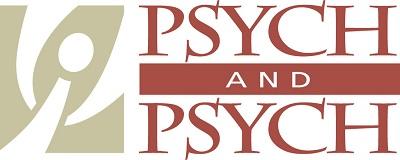What kinds of services are offered at Psych and Psych for alcohol and drug problems?
At Psych and Psych Services, we offer a wide array of outpatient services, individually tailored to best meet the needs of clients. Included in these services are assessments, individual sessions, outpatient group therapy, intensive outpatient programming, partial hospital programming, aftercare, and family sessions.
How do I begin the treatment process?
With a simple phone call! During your initial call, our intake staff will collect basic information, such as demographics and insurance details. You will then be scheduled with an appropriate therapist to conduct your assessment.
Will my insurance cover my treatment?
Psych and Psych Services accepts most private insurances, Medicaid for chemical dependency services, and we offer reasonable self-pay rates as well. Additionally, we currently have existing contracts with most commercial insurance carriers.
What types of topics are generally addressed in treatment?
Alcohol and drug treatment sessions address (but are not limited to) the following topics:
- The Addiction Process
- The Recovery Process
- Errors in Judgement
- The Relapse Process
- Values
- Decision-Making Skills
- Social Skills
- Emotional Awareness
- Anger Management
- Self-Esteem
- Stress Management
- Introduction to the 12 Steps
- Empathy
- Family Dynamics
- Communication Skills
What is I.O.P?
IOP is an acronym for intensive outpatient program. IOP is typically recommended for individuals diagnosed as dependent on drugs and/or alcohol or who have had multiple, repeated consequences due to drug and/or alcohol use; although treatment at Psych & Psych services is tailored to best meet the needs of the individual. IOP treatment typically consists of a total of 24-32 group sessions held three days a week for approximately 6-8 weeks. Because treatment is specific to client needs, however, length of treatment will largely depend on individual progress. Each session will be three hours long in length and group size will not exceed 12 individuals at any one time. The general therapeutic approach of the group is cognitive-behavioral (identifying triggers/signs/symptoms of use, confronting one’s own errors in judgment, and developing more healthy ways of coping with life). The Psych & Psych services IOP group focuses on education and therapy in the area of addiction.
What is aftercare?
Aftercare is a follow-up group for all individuals who have recently completed the IOP program or another type of CD treatment. Aftercare is developed to help clients deal with day to day challenges and focuses heavily on assisting clients to develop long-term relapse prevention skills. The purpose is to encourage and direct participants as they are transitioning from dependency to recovery and will aid them in building a positive support system.
Aftercare is a requirement for all individuals who complete the IOP program. It is recommended that each person continues in aftercare for 6 to 8 sessions, depending on the client’s success and need. Sessions are held one day a week and last one hour in length. Group size is limited to twelve clients.
How is low intensive group different from other groups?
The outpatient group is a weekly 60-minute group that is geared to individuals with less severe alcohol/drug concerns but would benefit from some type of treatment. The focus of this group is more psycho-educational in focus and is intended to make clients aware of the possible dangers of substance use, basic elements of addiction, awareness of the situations and/or people in which they may be more likely to use substances, and to formulate life goals that includes a strategy for substance-free living. The typical course of this treatment is between 8 weeks, but the length of treatment is largely determined by individual progress.
What are the qualifications of Psych & Psych therapists?
All staff members who provide treatment at Psych & Psych are licensed therapists or master’s level social workers and are trained in the areas of chemical dependency and mental health issues, and thus can provide comprehensive services to the individuals with whom they meet.
What if I need important information about my treatment to be communicated to my employer, attorney, school administrator, or other contact?
The staff at Psych and Psych Services recognizes the importance of keeping in contact with referral sources, and after the initial assessment will provide the referral source with appropriate information. During treatment, the clinician will maintain contact with the referrer and give updates regarding client’s attendance, progress towards treatment goals, and an estimate of when client will achieve those goals. When the client has completed treatment, the therapist will provide documentation of successful (or unsuccessful) completion of treatment and what factors determined the outcome of the client’s completion. Please be assured that your confidentiality is protected under applicable state and/or federal laws. In keeping with these guidelines, if you wish information about your treatment to be shared with others, you must sign an appropriate release of information available in our office.
What age groups are treated for alcohol and drug problems?
The full range of outpatient services are available for both adolescents and adults. Groups and individuals are scheduled at convenient times, so that individuals may maintain their employment and academic obligations.


